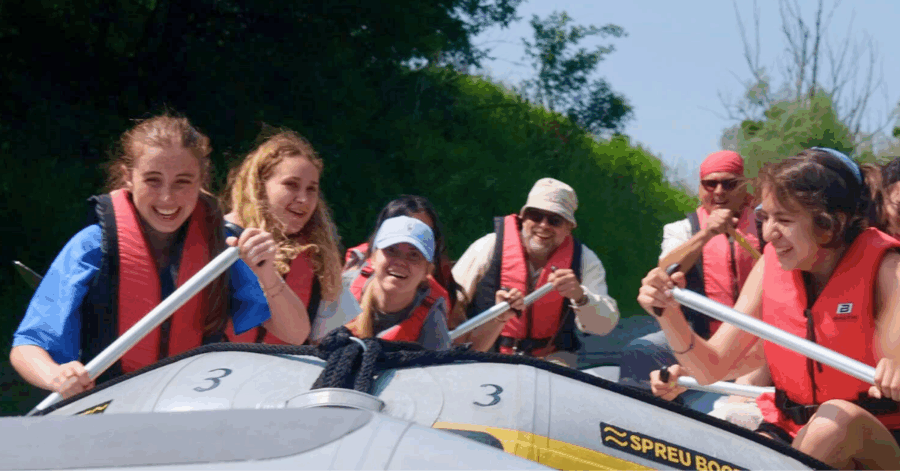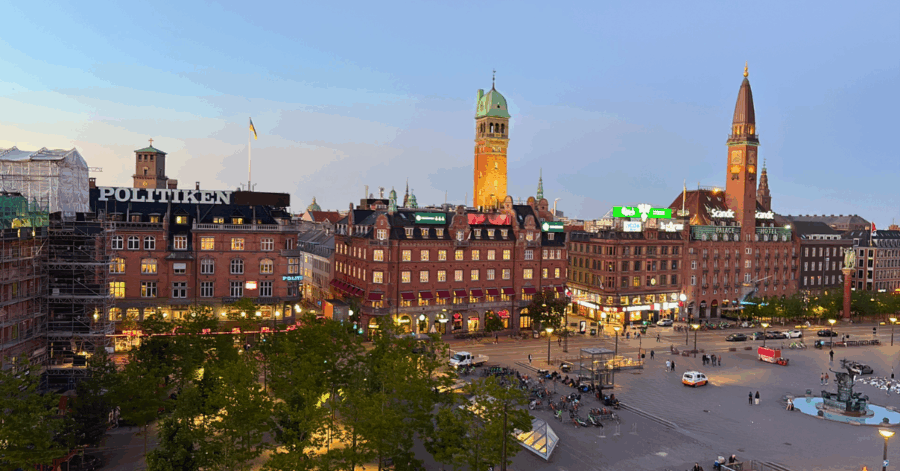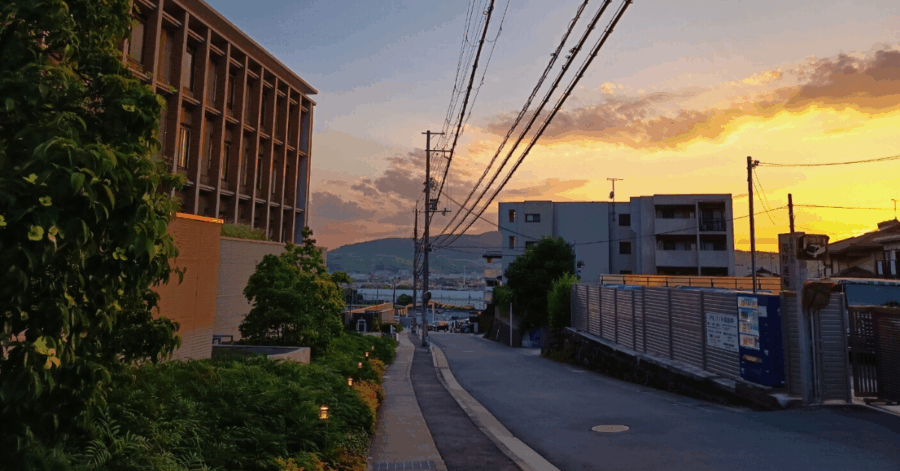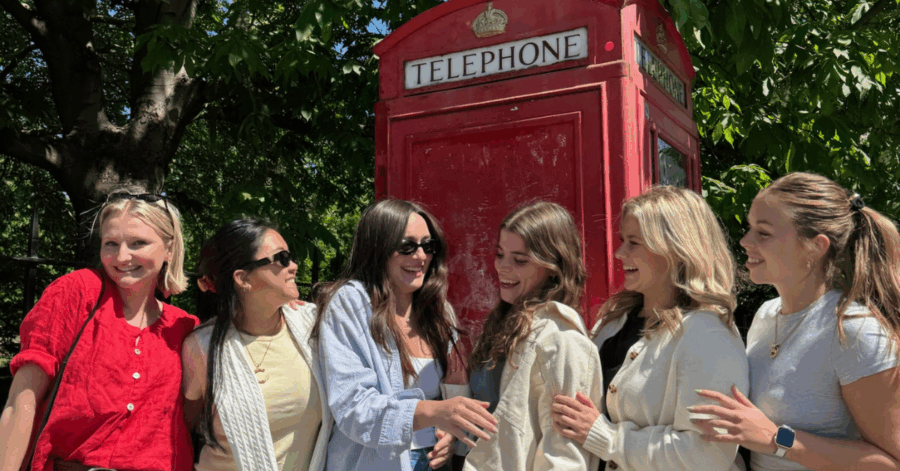안녕하세요! 제 이름은 가손 케바소 입니다.
유티 학생 삼학년이지만 지금 서울 대학교에서 공부하고 있어요.
저의 전공은 국제관계학이고 부전공은 한국어 입니다.
이번 가을학기동안 한국에서 살면서 공부하게 되어 매우 흥분됩니다.
공부도 열심히 하고, 재밌게 하고, 그리고 여러분께 그것에 대해 이야기하고 싶어요.
여러분을 만나서 반갑습니다!
Rough Translation:
Hello! My name is Kason Kebaso.
I am a third-year student at UT, but right now I am studying at Seoul National University. I am majoring in International Relations & Global Studies and minoring in the Korean Language. I am very excited to be living and studying in Korea this Fall semester. I will study hard, have fun, and tell you all about it. It’s a pleasure to meet you!
…
So now that I’ve introduced myself with what little Korean I know, here’s a little bit more about me: I was born in Kenya, but my father in Kenyan and my mother is Filipino.
Because my parents were missionaries, when I was little my family left Kenya and traveled to Korea, where we lived for two years. They say that I used to speak Korean fluently back then.
We left Korea and travelled around a bit more before finally settling down in the United States, wherein I soon learned English and forgot Korean. Although I forgot how to speak Korean, I didn’t forget my memories of the years we spent in Korea. Granted, while some of those memories have faded over time, I still reminisce upon those few, precious years as being home to some of the happiest, most carefree days of my life. Out of my desire to return to Korea and reconnect with its people, language, and culture, in the Spring of 2018 I decided to apply to study abroad in Korea and was accepted into SNU. It is now the Fall of 2018. I’m living in the heart of Seoul for the semester—and I have loved every second of it so far.
Now while I can’t do justice to the whirlwind of events and experiences I’ve had in the past two weeks since arriving, I can tell you about my weekend.
This past weekend I went rafting and paintballing with my new “family” here at Seoul National University, the SNU Buddies—a group of foreign exchange students intermingled with Korean native students. At 8 a.m. we bussed out of campus en masse to travel to the paintball grounds where an aggressive—but amusing—Korean man powerfully greeted us and proceeded to command our warm up: we massaged each other’s shoulders and stretched our bodies upwards to the sky before preparing for battle. After gearing up, we proceeded to the forest wherein we savagely pelted each other in both vain and valiant attempts to win glory for our respective teams.
After my team won (shameless plug: shout-out to team blue!) we went to a nearby restaurant where we were treated to a delicious lunch of bulgogi, banchan (side dishes), and of course, rice.
Then we took off to go rafting down the Hantan river, where we fought the rough waters and lost, heaving our fallen comrades back onto our raft. We also dove off the “fish” rock—showcasing various flips and belly-flops—waved “hi!” to curious Koreans gaping at us, and cheerfully chanted “one, two” as we rowed-rowed-rowed our way back to shore.
It was an incredible day. I made many new friends and yet another round of wonderful memories.
But all fun things aside, in retrospect, I’ve noticed one thing the most in the brief time that I’ve been here: the power of language.
Language has the power to build walls between different people, but it also has the power to bridge the barriers between them. These past few weeks have shown me that I am fortunate to know English, especially considering its current use as a global language. Nonetheless—from my Korean friends, to my Singaporean friends, to my German, Danish, Norwegian, Turkish, and Colombian friends (the list goes on and on)—each time I converse with someone to whom English is a foreign tongue, I am deeply awed by the person’s ability to respond to me—even if they’re not fluent. While they might not speak English perfectly, and are constantly apologizing for what they perceive to be a sort of incompetence, I feel truly humbled by how well they can communicate in spoken English—taking into account that for most of them it is their second—or sometimes even third or fourth—language. I am even more humbled by their persistence and determination to communicate an idea despite the language barrier. Sometimes I feel guilty for being the one American in a group of Germans or Koreans who obliges the group to speak in English, and other times I wish that I could simply speak their native languages in turn. But what I have realized the most is that each time a non-English speaker tries to speak English with me—even if their sentences are broken or their words are incorrect—I feel a deep appreciation and an immense respect for them and their efforts.
In reflecting upon my interactions with the people I’ve met here, it seems that the same can be said for Koreans who interact with foreigners that either speak or try to speak the Korean language. For instance, the moment I first walked into a Korean 7-Eleven and spoke to the lady behind the counter was the first time I spoke to a Korean (in Korea) and, consequently, the moment that I first realized just how poor my Korean-language-speaking-skills were. Yet even though my speaking skills were weak, not a single Korean that I met (seemed to) judge me for it. Rather, because they appreciated the fact that I tried to speak in their mother tongue—rather than compelling them to speak mine—they also seem to appreciate my efforts as well. Time and time again, as they patiently listen and try to decipher what I’m trying to say, they’ll smile—and sometimes laugh; they’ll correct me when I’m wrong and kindly respond in ways that I can understand, and they’ll nod their appreciation as I continue along my way.
So ultimately, even though there are many instances where I sometimes struggle to understand non-English speakers—and they sometimes struggle to understand me—at the end of the day, when people really, truly wish to communicate with each other, they don’t have to share a common spoken language. Sure, sharing a common language is an easy way to understand one another…but we can also manage to understand each other searching for the true meaning behind each other’s words and actions, and by connecting at the heart of our Seouls.
This post was contributed by Kason Kebaso, a 2018 Global Ambassador.
Don’t get left behind. Find your study abroad program>>




















Kason Kebaso I knew you when you were little kid.Congratulations for this opportunity that this program has given you.May the guidance of the Divine God be with you together with your new friends .You are smart girl ..Good luck ..God bless ,and success.Be an international diplomat…
Hey, Kason. Good to hear from you in here. Hope everything is going well in Korea. Look forward to seeing you again soon.